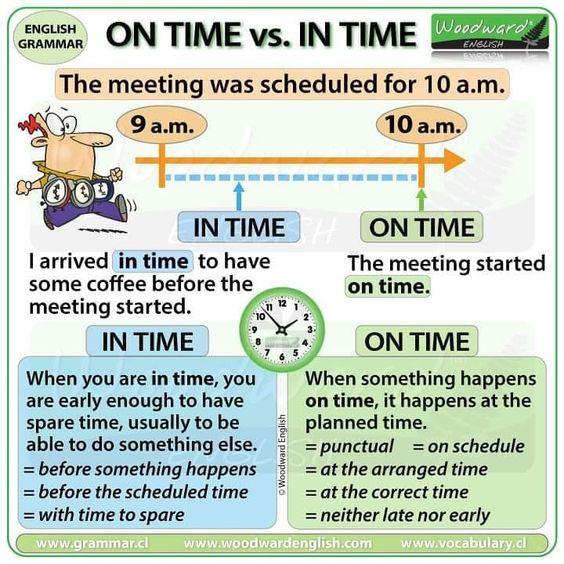The two prepositions "on time" and "in time" are widely used but also often used incorrectly. Let's take a look at the difference between the two below.

On time
When something happens "on time", it happens at the planned time.
= punctual
= on schedule
= at the arranged time
= at the planned time
= at the correct time
= neither early nor late
For Example:
The meeting was scheduled for 10 a.m.
- Despite being stuck in traffic, I managed to get to the meeting on time.
-> This means I wasn’t late. I arrived at the planned time.
- Amber always arrives late to work. She is never on time.
-> This means she never arrives at the correct time. She is never punctual.
IN time
When you are in time, you are early enough to have spare time, usually to be able to do something else.
= before something happens
= before the scheduled time
= with time to spare
Look at these examples:
The meeting was scheduled for 10 a.m.
Just in time
The phrase "just in time" refers to something happening at the last moment, just before the deadline or just before something was supposed to happen. It means that something was almost too late, for example:
The paper was due at 9 a.m. I sent it in a couple of minutes before it was due.
- I sent in the paper just in time.
Are you interested in teaching English as a foreign language? Get your TEFL or TESOL certification with ITTT.
Register now & get certified to teach english abroad!


